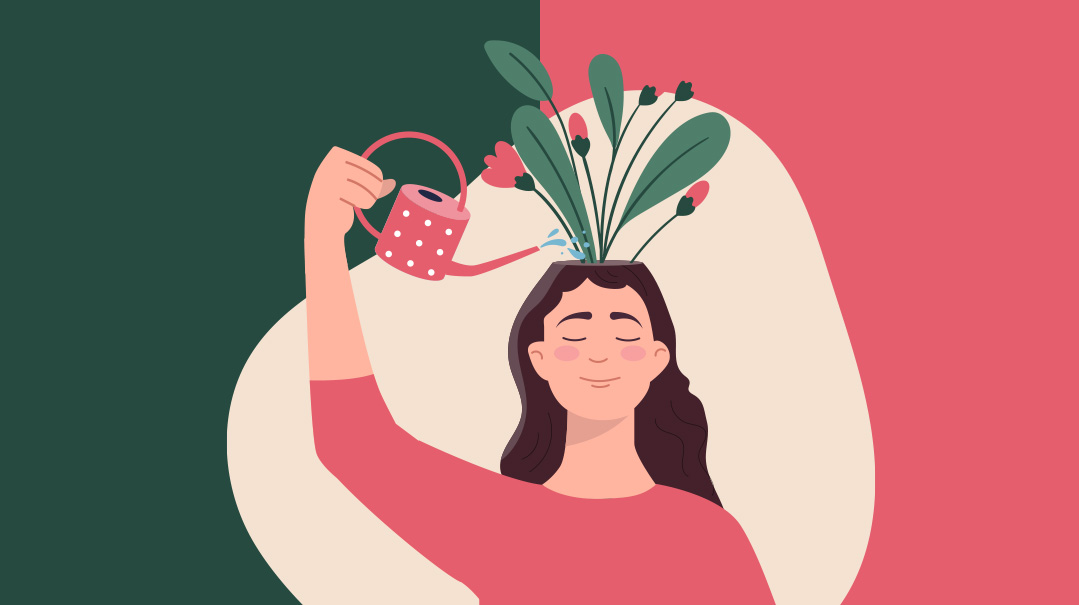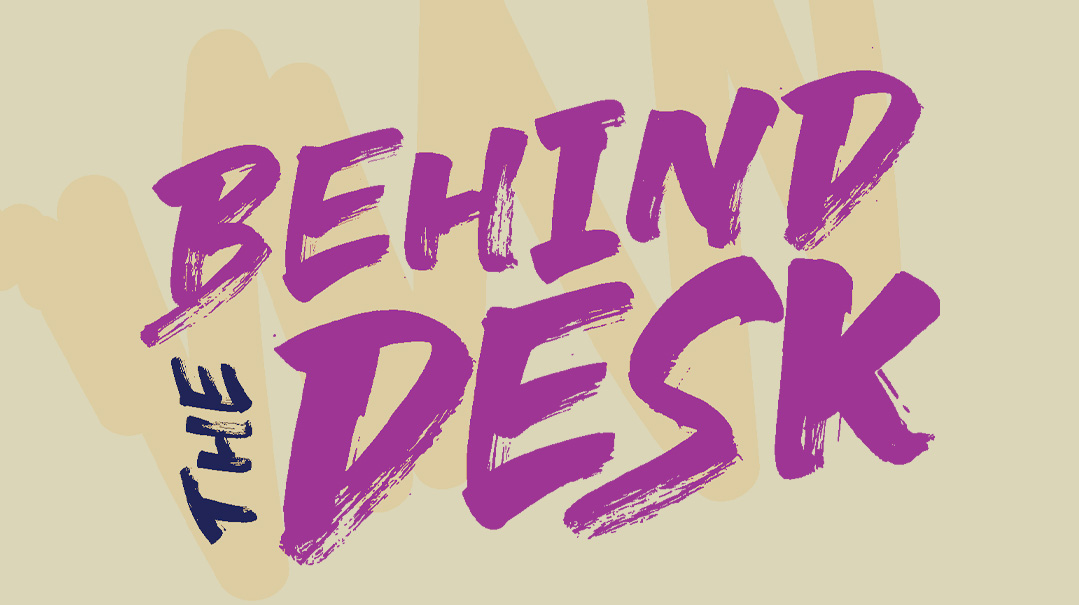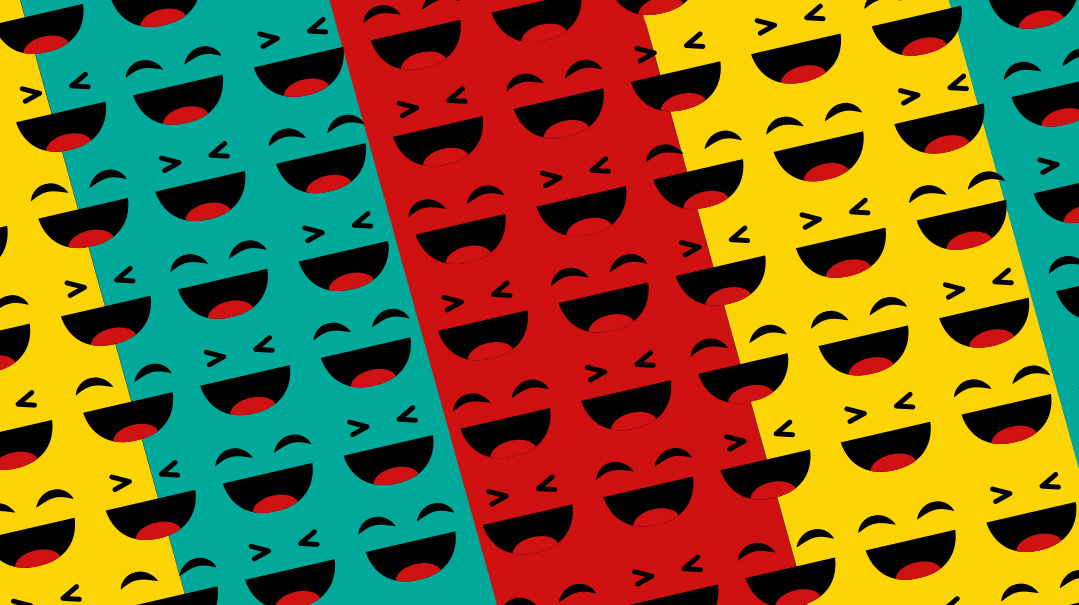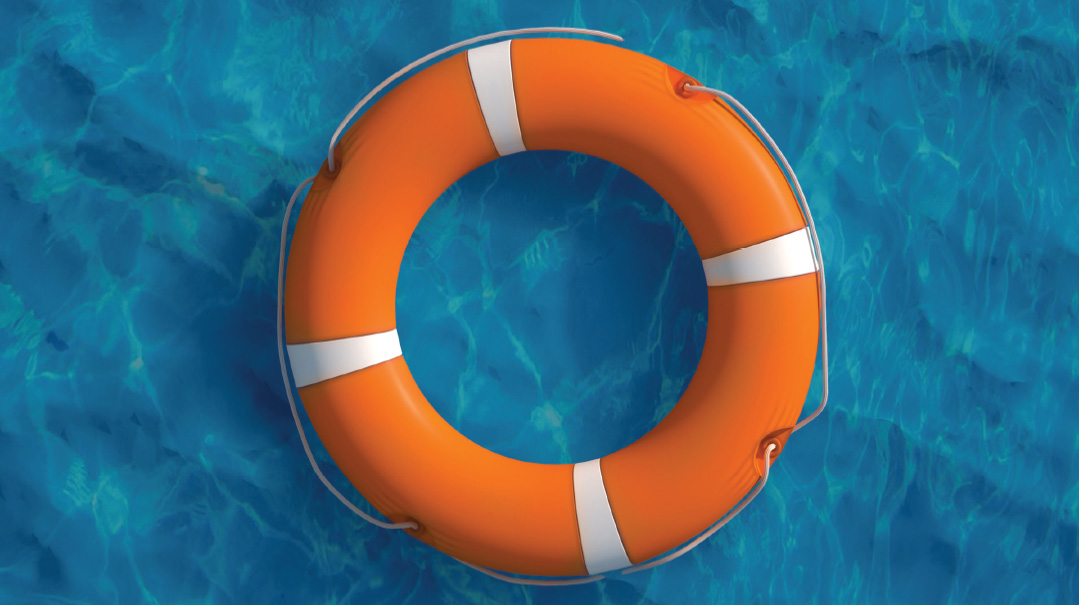Beyond Purim
| March 8, 2022Extraordinary stories of personal redemption

From Darkness to Light
In sixth grade, overnight, I went from being the class queen to the girl that no one wanted to talk to.
At the start of the year, I was very popular, and everyone liked me. School was a total breeze. Then one day, I found a really nasty note in my locker. I was shocked. Where had that come from?
My classmates started bullying me, and overnight, nobody would talk to me. If they did, it was to say something nasty. I was blackmailed into not telling anyone, and I was miserable.
Two weeks after the bullying began, my life as I knew it changed forever. That was the day I found out that my father was no longer frum.
It had been a really hard day; one of my classmates had poured a water bottle on me. I couldn’t wait to get home and unwind. Later that night, I was taking out the garbage when I noticed a McDonald’s wrapper. Shocked, I asked my mother about it.
“I’m sorry to tell you this,” she responded. “But Tatty is not frum anymore. He hasn’t been for a while.”
The news hit me very hard, and I became withdrawn and totally disconnected from the people around me. I no longer had a reason to go to school and began staying home frequently. I had no patience for anything or anyone around me. The whole situation was so painful. That is the only way to describe it.
Every Shabbos and Yom Tov, my family (besides my father) went away to my aunt or grandparents. At first, it was fun to go away, but after a short while, I just wanted my own house, my own bed, and my own meal with my family singing zemiros together. My brothers wanted to go to shul with their own father.
These may seem like the simplest things in life, but they were things that I couldn’t have.
By eighth grade, the situation became unbearable. For two weeks straight no one in my class talked to me. When someone finally did say something to me, it was a nasty, biting comment. Yet I still kept my mouth shut and didn’t confide in anyone. I felt so alone.
Going from school to home was like going from terrible to even more terrible. School was horrible and lonely. Home was so painful. And yet, I learned to put up an “I’m okay” facade. I always had a smile on my face, and academically I did very well, so none of my teachers had any reason to be concerned about me.
The situation at home was like living in an ocean of waves. At times the dynamics at home with my father were good and peaceful. We were able to have nice conversations (about things not pertaining to Yiddishkeit), and he was always there to help me with anything I needed. But other times, the situation was so painful, so terribly out of control, and I was starkly reminded of my crazy life.
My mother is a real tzadeikes, a real malach from Shamayim — that’s the only way to describe her. She is keeping the family together, and we hope that our father will change. For support, she turns to her close friends and sisters.
By the end of eighth grade, I was so disconnected from my classmates and from Hashem. Because I was so isolated, over the summer, I found it hard to daven and connect to Hashem. I was resentful, angry, scared, and confused. And the worst part was that I had no one to talk to.
My salvation came in ninth grade.
On the first day of high school, my classmates and I all made our way to the large davening room. I hadn’t davened in so long that I hardly knew what to do anymore. Just my luck, the principal sat down right beside me so I couldn’t even read or sleep through davening. I actually had to pretend I was doing something with my siddur! Later that day, a senior, Ricky, sat down next to me and struck up a conversation like it was the most normal thing in the world.
“Hey, what’s your name? Do you like school so far? How’s everything going?”
Ricky had no clue who I was, or what my story was, but that short, easy conversation proved to be vital. I had no one to talk to in forever, and finally, someone was talking to me! It was major! A seed was planted.
There was a school function a few weeks later, and I had no one to sit with, and no one to talk to. I was so utterly alone in the world and finally found my way to an empty stairwell. I let my facade fade away and began sobbing. Suddenly my malach from Hashem, my salvation in life, Ricky, walked by and found me there. Though I’m sure she would have liked to hang out with her friends that night, Ricky sat down and talked to me for four and half hours! This literally changed my life, and I’m not exaggerating.
Ricky and I began learning Living Emunah together every day. In school, she constantly checked up on me and made sure that I was okay. Ricky was amazing; she always had a smile on her face, and was always looking out for me. Ricky helped me emerge from my shell. She made me want to connect to people, so that I could actually start having friends, and want to connect to Hashem. Ricky literally flipped my entire life right-side up.
The initial reconnections, to classmates and to Hashem, were not easy. I had been so wrapped up in my own misery and so disconnected for so long. In the beginning, I had such a hard time davening. “I don’t feel anything, so why should I try?” I asked Ricky. She encouraged me to keep at it and the feelings would come. I wanted to connect to Hashem, so I found ways to express myself. I began writing poems and letters to Hashem to share my feelings.
Socially, it was hard in beginning. Ricky introduced me to other girls, and from there, my social circle grew. Once I felt confident enough, I found myself wanting to make new friends.
Baruch Hashem my life has gotten to a more stable place.
In the beginning, everything seemed all bad, but I am finally able to see the silver lining in the stormy clouds. I can have fun with my siblings. I have a great relationship with my siblings and mother and with my father (to the extent that it’s possible). Now that the staff members in my school actually know what’s going on, they are extra kind and sensitive to me.
I’ve become a deeper, more sensitive person. I am able to help others going through hard times because I’ve learned how to listen, really listen, because I get it.
I’ve learned to find Hashem in my life, and since then I feel so taken care of by Him.
I often find myself saying things like, “It’s raining and the bus came right away so I didn’t get drenched. Thank you, Hashem! I’m really thirsty and hey! I found an extra water bottle at the bottom of my backpack! Thank you, Hashem! At the last moment, I remembered to grab my calculator for the test. Thank you, Hashem! I got the best seat in the classroom, the one that everyone wants, without even requesting it. Thank you, Hashem!”
There still are many challenges in my life and so many difficult emotions that come along with my situation. For example, I don’t like to have friends over. Even though they know what’s going on — that I’m living with a non-frum parent — there’s a big difference in knowing it and actually seeing it. So I hang out at my friends’ houses or we go out together.
Dealing with the negative influences in my home is also very hard. But I’ve managed to resist any temptations and instead focus and enjoy other hobbies such as playing violin and piano.
It took a lot of work to get to where I am today: A lot of trials and fails and trials and fails. But I have gotten to a much stronger place.
My greatest salvation is the connection I’ve managed to forge with Hashem. I wish I could say it was easy and fast, but in reality it was slow and difficult. In retrospect, though, I am happy that the connection took a lot of hard work. My relationship with Hashem is now stronger and more real because it was built and strengthened through hard times.
Today, I deal with my challenges by davening. If I miss a Shacharis or Minchah I physically feel different.
To other teens going through hard times, always remember: When you feel like nothing can ever get better, find someone to talk to, and it will make a world of difference. It may be a teacher, a therapist, a friend, a cousin, a goldfish (okay, kidding, not a goldfish) but speaking to someone can change the course of your life. Don’t give up. Take it from me — connect to someone, and connect to Hashem, and it will get better!
Emerging from Mourning
In Yiddishkeit we have a strong framework for mourning. There’s shivah, shloshim, and a year of aveilus.
But what happens when you’re a teen, mourning the loss of two grandparents that you were really close to, and no framework to process the loss?
My father’s father was niftar during Covid. With all the crazy restrictions, my father was hardly able to make it to the levayah. (We live out of town.) He sat shivah separately from his siblings, most of the shivah calls took place over Zoom, and some community members visited on the back porch. It wasn’t easy.
And then, several days after the shivah, we were plunged into mourning again.
My mother’s father had been living with us for several years, and I was really close to him. He was such a big part of my life… And then suddenly, without any warning, he was gone. I was left mourning two grandparents. I had no grandparents left in the world. I was heartbroken.
And yet there’s no structure to follow for the loss of a grandparent, and no set way to process the grief. I was invited to sit with my parents, but it was sad and difficult to sit there all day. On the other hand, I needed the closure, so I ended up sitting with them part of the time.
I found it hard to face the world and chat with my friends about ordinary things. Sometimes I wanted to scream: Hello! I just lost both my grandfathers. Who cares about petty things?
The isolation and grief left me with so many emotions to process and so many questions about life. I felt alone. No one understood what I was going through, and my parents were dealing with their own grief. So who can I talk to? I wondered.
My answer came during the days after shivah when I finally confided in a friend. “I’m so sad, but I don’t even know how to mourn!”
My friend listened to me. I spoke to her about my grandfathers and about my feelings. She didn’t judge me, and she didn’t ask questions. She just listened, and I felt so much better afterwards.
My friends were really there for me. I was so comforted by their small (and not so small) gestures. My neighbors invited my younger brothers over. A friend invited me to garden with her; that was a great way to take my mind off things. Another friend came over with a huge tub of ice cream, sprinkles, and cones. Another friend invited me to bake with her. Neighbors sent over meals.
It felt so good to be cared for. And mostly, it felt good that my friends validated my pain.
Once I felt validated, I was able to channel my energies back into helping my family and taking care of my little brothers. I spoke to my cousins and heard new stories about my grandfather. We were in this together. We even created a slideshow with pictures and memories.
I had gotten through a very difficult time, yet I came out stronger than ever. And once I got past the grief, it was eye-opening to realize that our lives are a gift, and we should use them to the fullest.
A sign now hangs in my bedroom. “Today is gift from Hashem. What are you going to do with it?”
There’s No Place Like Home
There are so many misunderstandings about mental illness. I know because I’ve been there. There was a time when I knew so little about it. And then it hit home, literally, and I gained a new understanding and sensitivity that has changed me for the better.
Covid was a hard year for everyone: the lockdowns, the uncertainties, the lack of structure, and the fears.
My older sister Estee had an especially hard time, but I figured it was just a matter of time until things would become normal again. Thankfully, she would be attending seminary in Israel the next year, and we all hoped it would be good for her and bring back her old spark.
Throughout Estee’s seminary year, my parents didn’t update me much about her, but in retrospect, there were warning signs throughout the year. There were constant phone calls from Estee’s eim bayit. (Does she call all of the girls’ mothers this often? I remember wondering. The answer is no.) My parents had many hushed and tense conversations. I only received vague answers when I asked about Estee.
Deep down I sensed that something was off, but I so wanted everything to be normal. I wanted Estee to be okay. I desperately wanted to be a normal family.
Then came the moment when it all came crashing down.
“Sweetheart, there is something I want to tell you,” My mom said to me one night.
My heart was pounding quickly. It’s about Estee. I just knew it, and I had a sinking feeling in my stomach.
“Estee is coming home from seminary tomorrow night,” my mom told me. “We just booked the ticket to New York.”
“But its two months early!” I protested.
“Well, this way she can go to Tanta Chevy’s wedding next week…”
I scrunched my eyebrows. “She’s coming home early from seminary for an aunt’s wedding? Is she going back afterwards?”
My mother sighed.
“Estee is coming home because she needs help. The wedding is an excuse that we can tell others, because her challenges right now are private.”
“Oh.”
After my initial shock, I was actually looking forward to seeing her. I missed her!
I was also looking forward to Estee’s help. Estee and I are the only girls in our family. And as the oldest girl, Estee really helped a lot over the years. While she was in seminary, I had to work really hard. Finally Estee was coming home, and there would be someone else to pitch in around the house!
But when Estee came home, nothing was normal. I hardly recognized her. She looked different and acted differently. She was wrapped up in her own world, and my parents were wrapped up in their own world of taking care of her.
Estee didn’t lift a finger to help in the home (not that my parents expected her to), so there I was, still doing everything in the house, and I really resented it.
Estee spent most of her days on the phone, locked in her bedroom, but when she finally came out, she was always yelling and snapping at everyone. Oh, and she never ate. Mealtimes were a really big struggle because she never wanted to eat, and the tension around the table was off the charts.
My brothers were either away in yeshivah or too young to process what was going on. But I was ready to explode! I finally asked my parents if we could talk privately. I wanted to know what was really going on with Estee.
“We have to get Estee’s permission first, before we can talk about her situation in detail,” my father responded. Later that day, with Estee’s consent, he finally sat down to talk to me.
“Estee is going through a very rough time right now,” he explained. “It’s not her fault that she’s sick. She’s been diagnosed with depression, anxiety, and anorexia, and we all have to be there for her now and take care of her…”
I was a total wreck. What did all of this mean for her and for me? My father offered to take me for a walk to explain. He explained what mental illness was. Yes, she was really sick. No, she couldn’t just “snap out of it.” No, working on her emunah would not cure her mental illness. No, this was not her fault, and no, this was not anyone’s fault. It was a nisayon from Hashem like any other painful illness.
And what a painful nisayon it was!
We were chugging through the days, just trying to stay afloat, as my parents spoke to doctors and professionals, trying to find the best treatment plan for Estee. At last summer came, and I could finally leave the craziness of home and go to camp where I could pretend that I was normal!
At the same time, I felt so guilty to leave my family, specifically my parents, in such a state. But my parents reassured me that they wanted me to go to camp, and this was the best thing for me.
I remember one afternoon when my Mom finally made the time to take me camp shopping. I was excited for a bit of attention and finally relaxed in the car as we drove off together.
But then her phone rang. It was an important call from Estee’s doctor. She had to take it, even while she was driving. And then moments later, she got pulled over for talking on her cell phone while driving.
I was so angry! Couldn’t I just have a few “Estee-free” moments when I could be a regular teen shopping for camp?
I was desperate to vent to my friends! To let out steam and collect my much-needed sympathy.
But I couldn’t.
My parents wanted to protect Estee’s privacy so I couldn’t talk about it to anyone. Instead of gaining understanding from my friends, I had to deal with the unbearable questions and pressure of needing to fumble excuses. (I’ve since learned not to ask anyone prying questions, as curious as I am.)
At last I went to camp and breathed a deep sigh of relief. There were no siblings or parents around, so I was as normal as anyone else. I felt so good to just blend in! But it was still hard to forget what was going on at home, and I was worried. Because of Estee, I became extremely sensitive to issues related to food. So when my friend (a super picky eater) started skipping many of the camp meals, I worried about her. I called my parents, and they reassured me that my friend was still within the “healthy range.”
Thankfully, by the time I returned home from camp, Estee was already in a facility where she could benefit from round the clock help, so that worked well for me. While she spent four months there, life was more or less regular; though again, we had to make up a lot more excuses. Estee was away for college, she was spending Yom Tov with out-of-town relatives, and she was with her friends…. But other than that, I lived my normal life.
The hardest part was Estee’s return home from the facility. In the facility, they were healing her. The focus was totally on her. They didn’t teach her how to live with other people, once she was on a healthy road herself.
If I thought I could have some good company from my sister, or someone to share the chores with, I was wrong. Estee was wrapped up in herself: She had to track what she was eating, take calls from her therapists, and deal with the issues of balancing her medications. She did a bit of online college, which kept her somewhat busy, but overall, she was very hard to live with.
My parents were treating Estee very differently, like buying her things that I didn’t get, and that really upset me. During those initial months at home after Estee came back from living in the facility, I was miserable. Forget Estee, how would I survive this ordeal? True, Estee was the one suffering with mental illness, but it affected me in a very real way!
It took a lot of time and work for me to learn how to survive.
I spoke to my father often and I kept a diary. My father kept explaining to me what Estee was going through. I came to understand — really understand — that mental illness was real, the chemicals in Estee’s brain were messed up. My father kept reminding me that Estee couldn’t control this sickness, and it was not her fault. This helped me be more sympathetic. It didn’t happen overnight, but slowly I came to empathize with Estee and try to understand what she was going through. I sensed that my parents believed in Estee’s full recovery, so I believed in her too. I learned to let things go, not to put up fights about all the things that bothered me, and miraculously, with a lot of hard work, we all made it through!
I also read uplifting books and listened to shiurim to strengthen myself. When I wasn’t in the heat of the moment with Estee, I was able to work on myself. And through this I became a changed person.
Looking back, I am amazed by how far I’ve come. I understand people better. I understand what mental illness is. And in general, I have become a more sensitive person.
Tips from Teens:
On facing challenges:
—Trying to pretend that everything is perfect when it’s not is harmful. You can admit that things are hard. It’s okay to not be okay. Just because you have an issue, that doesn’t make you less of a person.
—Find activities you enjoy and work on them. Don’t let your challenge take over your life.
—Having a support system and relying on other people can really help. Even if you don’t want to talk to anyone in your family, reach out to a friend, a therapist, or someone in your community. Talking really helps!
—Remember, gam zeh ya’avor! One day this will go away, or you’ll get used to the situation, and either way it will make you a better, stronger person. Don’t let the tough times wear you down.
—When you feel able, think about what you can learn from this experience. What can you take out of this experience? How can you use your experience to help others?
On helping a struggling friend:
—Don’t say or even insinuate that your friend caused this issue.
—Don’t say, “It’s not so bad, and you’ll be fine.” It is NOT easy!
—Don’t say, “Hashem loves you, and therefore He is testing you.” That’s not what we want to hear!
—Don’t treat me like a chesed case, because I am not one. We don’t want to become your chesed of the day!
—Invite us for Shabbos. Invite us to go out with you. These gestures may just hit the spot and do so much for us!
—If we don’t look okay, come over and say, “Hey, is everything okay?” Even if we don’t want to answer you, we feel loved.
—Remember, you may not be able to do anything earthshattering for us, and we may not need anything earthshattering from you. Just feeling your care is all we need.
A Friend in Need
Q & A with Tali Arieff, LCSW
Q: Can a teen respond to a friend in crisis?
A: When a friend confides that she is facing a crisis or challenge, it can feel scary and shocking. You may feel a bit frozen or shaky, or be unsure of how to respond. Or you may have the opposite reaction, an urgent need to quickly say something helpful by jumping in with suggestions or solutions, gushing with sympathy, or hurriedly sharing your own experiences and stories you’ve heard that feel somewhat similar.
The first rule when someone shares personal pain is to listen! Just listen to what she is telling you. Make eye contact, focus fully on her, and respond with short statements that show that you hear and are taking in what she is telling you. Try to convey with your eyes, your body language, and your brief words that you care, that you want to be there for her, and that you can handle what she is telling you without being scandalized or running away. Later, you can deepen your friendship by sharing your own struggles, you can provide concrete help if needed, and you can share thoughts that you think she’ll be open to. But not right away.
Q: Can you give an example of a time you saw this done the right way and the wrong way?
A: I have plenty, but here are two true stories of teen clients of mine with extreme, debilitating anxiety. After a lot of work in therapy, both felt less shame over their struggle and were ready to share with trusted friends what they were experiencing. One girl got a great response: Her friends supported her, a few shared that they too had emotional struggles, and they formed a bit of an informal support group. The other, unfortunately, became grist for the class rumor mill. Some kids made her feel weird; others acted super nice out of pity.
Q: What are some dos and don’ts of helping a friend?
A:
DO respect your friend’s privacy.
DO listen and care.
DO normalize her struggle by being human and vulnerable yourself, because we all have challenges.
DON’T ignore the issue because it’s awkward.
DON’T discuss the situation with other girls, even under the guise of “helping.”
DON’T rush to share your opinion.
DON’T make her feel like there’s something wrong with her.
DON’T become condescending and painfully helpful.
DON’T get too involved by becoming your friend’s therapist. You may want to help, but you just don’t have the license and boundaries that keep clients safe in therapy! If your other friendships, family relationships, and needs are getting neglected, that’s a warning sign that you’re doing too much. Guess what? This is actually not a chesed. It’s harmful.
Q: What can a teen do if she is overwhelmed by her friend’s challenge?
A: If your friend’s problem becomes your problem, you will be overwhelmed, and you’ll both suffer. So speak to an adult if you need to. The best way to offer support is with boundaries. And remember, Hashem is in charge: Daven, and remember that He controls the outcome, not you. If you follow these steps, your friend’s challenge won’t become overwhelming.
Q: What is the best way to offer support?
A: The best way to offer support is to be real and human. Your friend’s current problem may be more obvious, but we all have parts of us that are in pain, parts that are insecure, parts that are struggling. If you can be real and give your friend the gift of allowing her to be real; if you can drop the mask of perfection and live with the messy self we all have underneath… then you’ll be able to create a safe place to hold your friend’s difficult reality. And as a bonus, you’ll be better able to hold your own!
Tali Arieff LCSW RPT maintains a private practice for kids, teens, and young adults in Brooklyn, NY.
(Originally featured in Teen Pages, Issue 902)
Oops! We could not locate your form.






